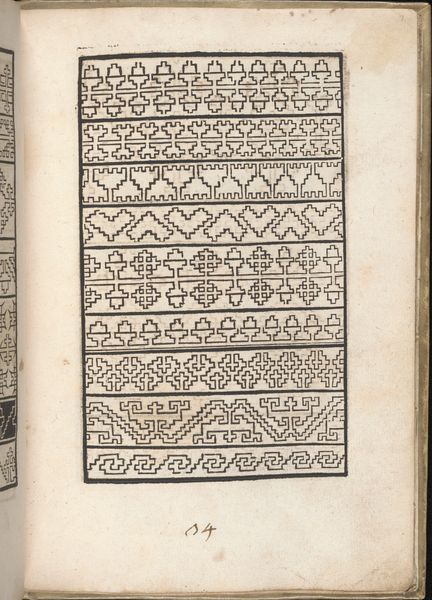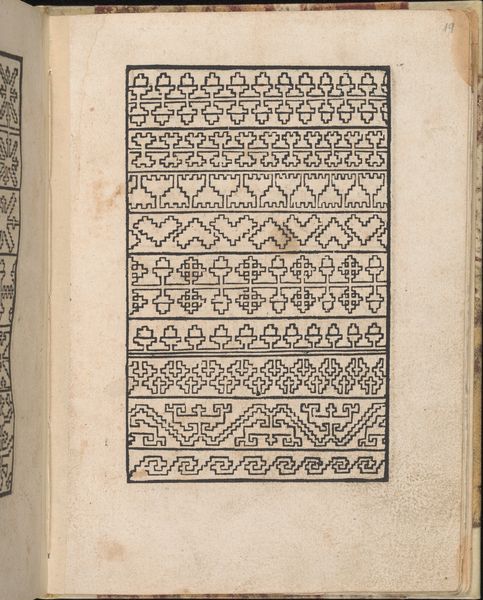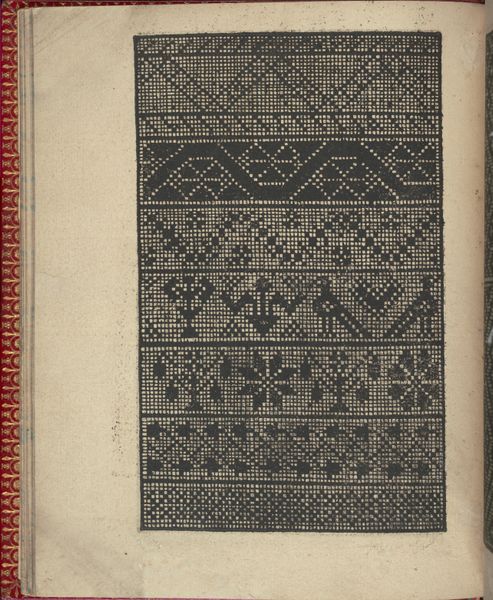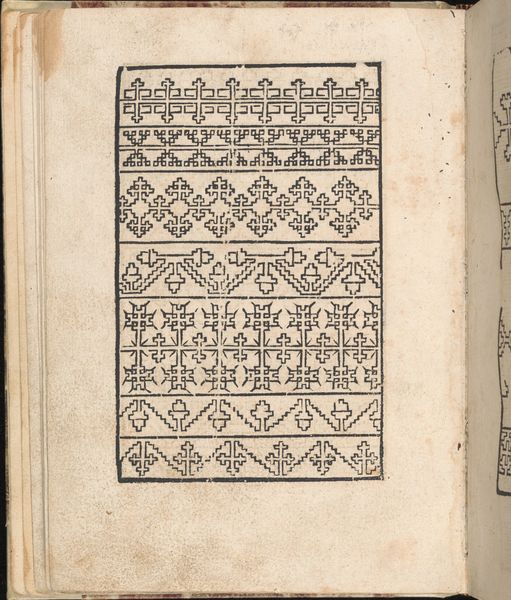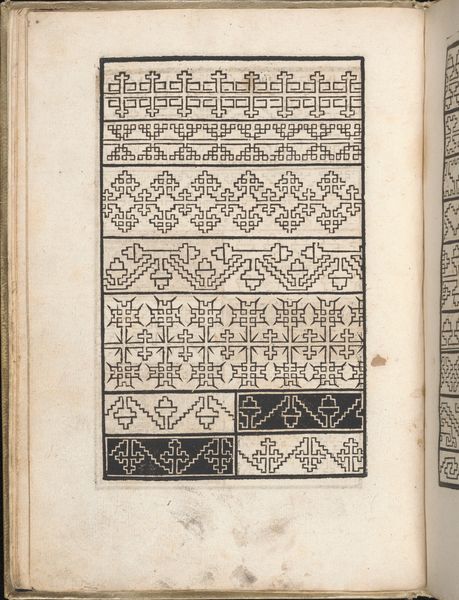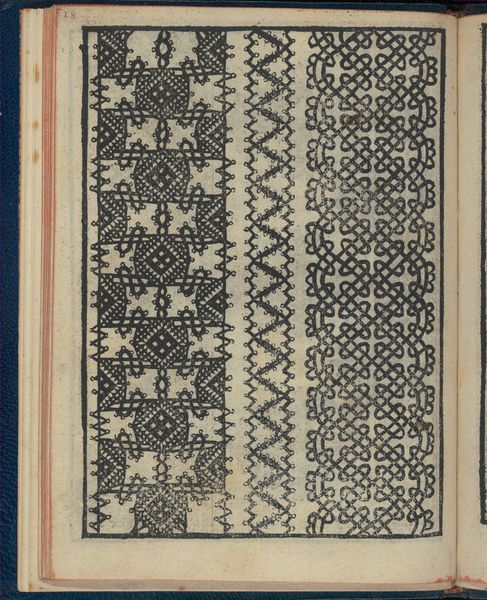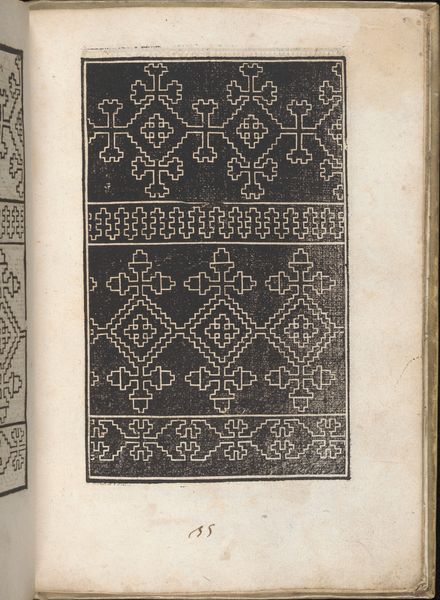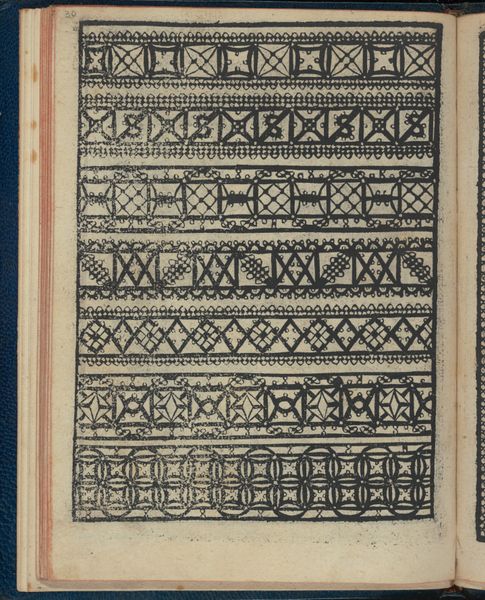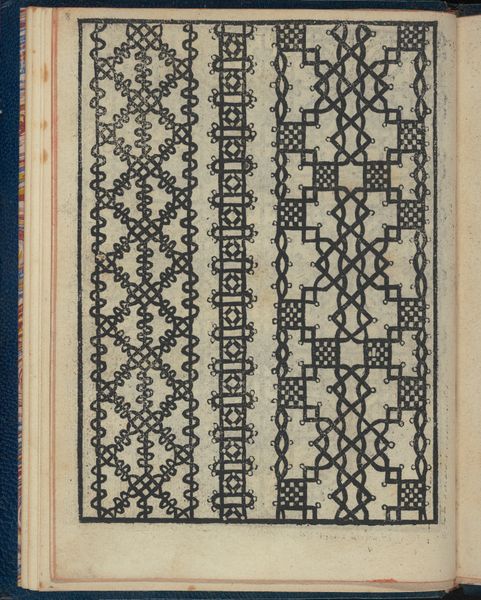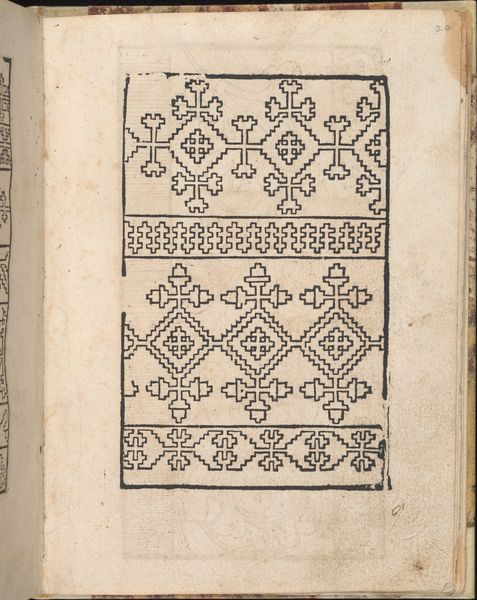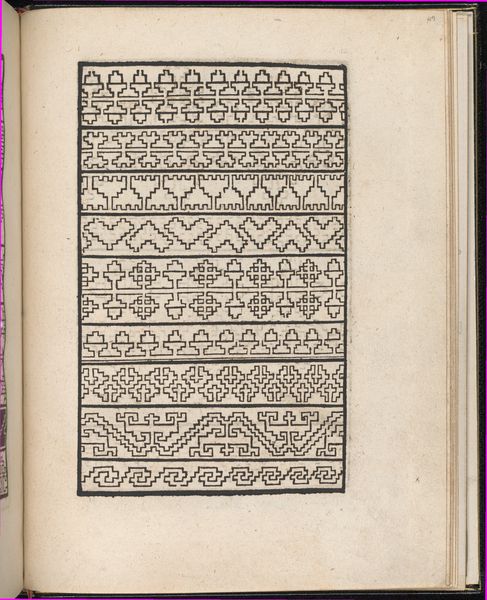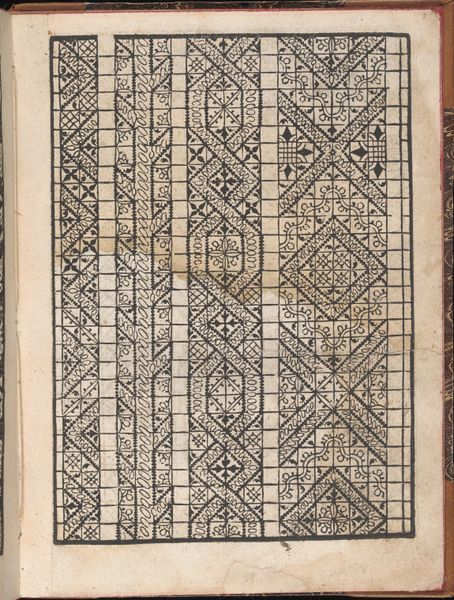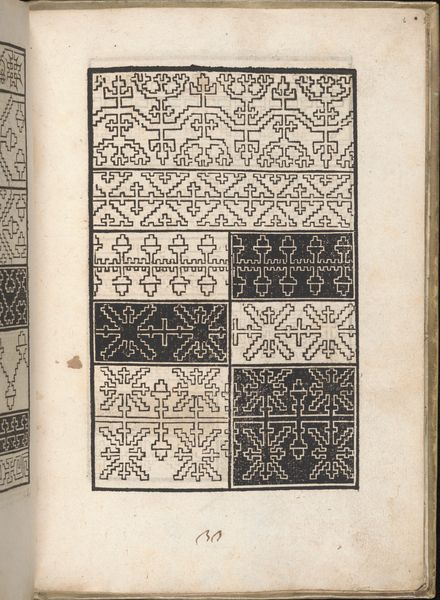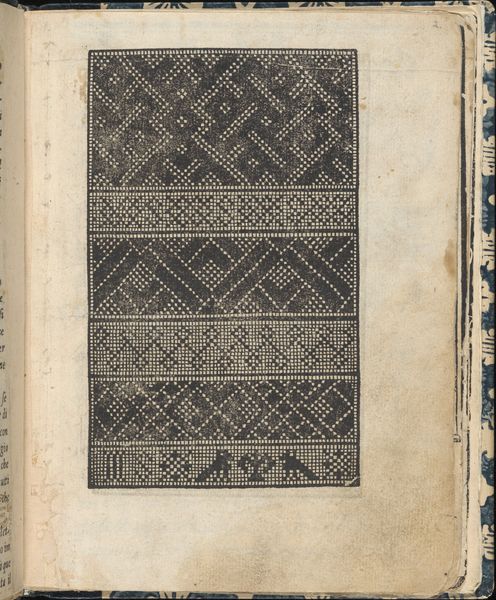
Ce est ung tractat de la noble art de leguille ascavoir ouvraiges de spaigne... page 20 (recto) 1527 - 1540
0:00
0:00
drawing, ornament, print, paper, ink
#
drawing
#
ornament
#
medieval
# print
#
book
#
paper
#
11_renaissance
#
ink
#
geometric
Dimensions: Overall: 6 7/8 x 5 11/16 in. (17.5 x 14.5 cm)
Copyright: Public Domain
This is page 20 from Willem Vosterman's woodcut pattern book, a treatise on the noble art of the needle, printed in Antwerp around 1525. Its designs, inspired by Spanish embroidery, speak to the economic and cultural exchanges that defined the early 16th century. Pattern books like this reveal the increasing commercialization of art. Antwerp, a major port city, was becoming a hub for the production and distribution of images. Vosterman, as a publisher, played a key role in this process, responding to the growing demand for accessible and reproducible designs. These books democratized artistic knowledge, making it available to a wider audience beyond the traditional workshops and guilds. The geometric patterns themselves reflect the influence of Islamic art, a testament to the cross-cultural fertilization happening in Europe at this time. To understand the full impact of this book, we might consider the history of printing, the economics of the textile industry, and the social status of women, who were the primary consumers of these patterns. The art historian stitches together such threads to understand the bigger picture.
Comments
No comments
Be the first to comment and join the conversation on the ultimate creative platform.
